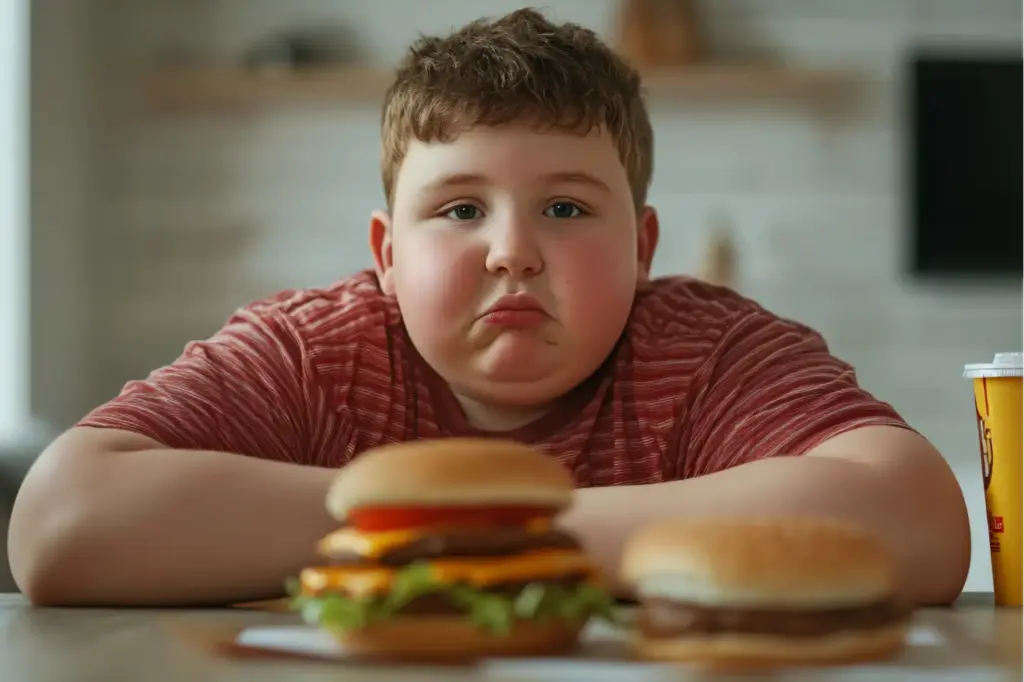
Childhood obesity and junk food: For the first time, more children and adolescents are obese than underweight globally, a UNICEF report has found, warning that ultra-processed foods (UPFs) are crowding out fruits, vegetables and proteins in childhood diets.
An estimated 188 million 5–19-year-olds, about one in 10, were living with obesity in 2022. By comparison, 9.4% of five-to-19-year-olds were obese versus 9.2% underweight; in 2000, the split was 3% obese and nearly 13% underweight.
Also Read | Ultra-processed foods account for 55% of US calorie intake, says CDC
“When we talk about malnutrition, we are no longer just talking about underweight children,” said UNICEF Executive Director Catherine Russell. “Obesity is a growing concern,” she added, citing the displacement of nutritious foods by UPFs at a critical stage for growth, cognition and mental health.
Drawing on data from more than 190 countries and agencies, including WHO and the World Bank, Feeding Profit: How Food Environments are Failing Children reports that one in five 5–19-year-olds is overweight, and a rising share of them meet obesity thresholds, 42% in 2022, up from 30% in 2000. Obesity now surpasses underweight in every region except sub-Saharan Africa and South Asia and is prevalent even where wasting and stunting remain high.
Rates are highest in Pacific Island nations amid a shift from traditional diets to cheap, energy-dense imports: Niue (38%) and the Cook Islands (37%) of 5–19-year-olds are obese. High-income countries also report elevated levels, including Chile (27%), the U.S. (21%) and the UAE (21%). The fastest growth has occurred in low- and middle-income countries, where modern retail, delivery apps and price differentials have made UPFs relatively cheaper than fresh foods.
UNICEF links childhood obesity to higher risks of heart disease, type 2 diabetes and some cancers later in life. UPFs, such as sugary drinks, breakfast cereals, biscuits, cakes and ready meals, are heavily marketed, widely available in shops and schools, and often contain additives and high levels of added sugar, fat or salt. “Relentless” promotion targets children and parents, creating environments where unhealthy options are hard to avoid, the report said.
UNICEF praised measures such as Mexico’s ban on UPF sales and marketing in schools but warned that “unethical business practices” undermine policy efforts. It urged governments to deploy front-of-pack labelling, marketing restrictions, fiscal tools (taxes and subsidies), school-food standards, and stronger social programmes to make healthy diets affordable, along with safeguards against industry interference in policymaking.








